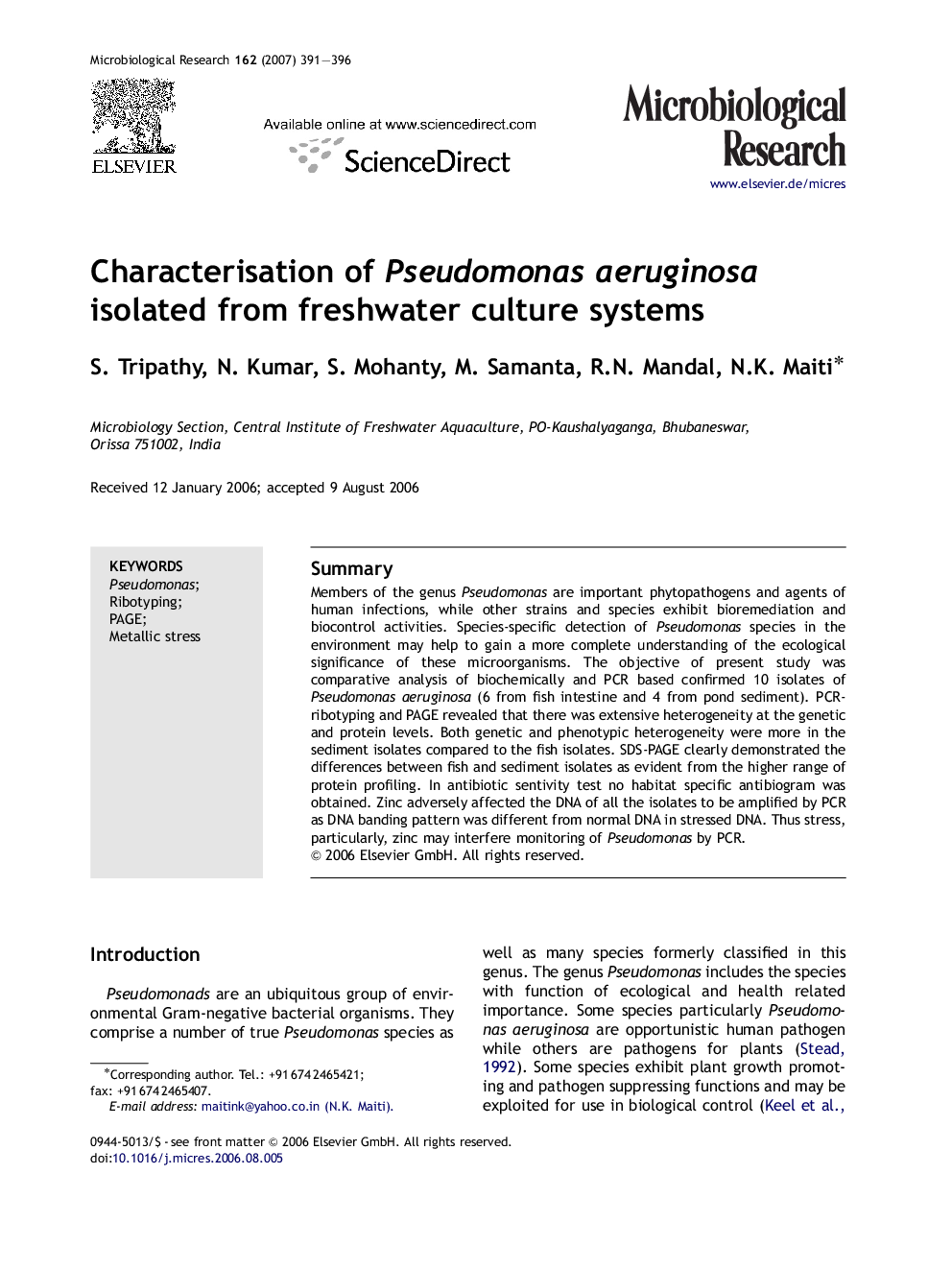| Article ID | Journal | Published Year | Pages | File Type |
|---|---|---|---|---|
| 2093195 | Microbiological Research | 2007 | 6 Pages |
SummaryMembers of the genus Pseudomonas are important phytopathogens and agents of human infections, while other strains and species exhibit bioremediation and biocontrol activities. Species-specific detection of Pseudomonas species in the environment may help to gain a more complete understanding of the ecological significance of these microorganisms. The objective of present study was comparative analysis of biochemically and PCR based confirmed 10 isolates of Pseudomonas aeruginosa (6 from fish intestine and 4 from pond sediment). PCR-ribotyping and PAGE revealed that there was extensive heterogeneity at the genetic and protein levels. Both genetic and phenotypic heterogeneity were more in the sediment isolates compared to the fish isolates. SDS-PAGE clearly demonstrated the differences between fish and sediment isolates as evident from the higher range of protein profiling. In antibiotic sentivity test no habitat specific antibiogram was obtained. Zinc adversely affected the DNA of all the isolates to be amplified by PCR as DNA banding pattern was different from normal DNA in stressed DNA. Thus stress, particularly, zinc may interfere monitoring of Pseudomonas by PCR.
